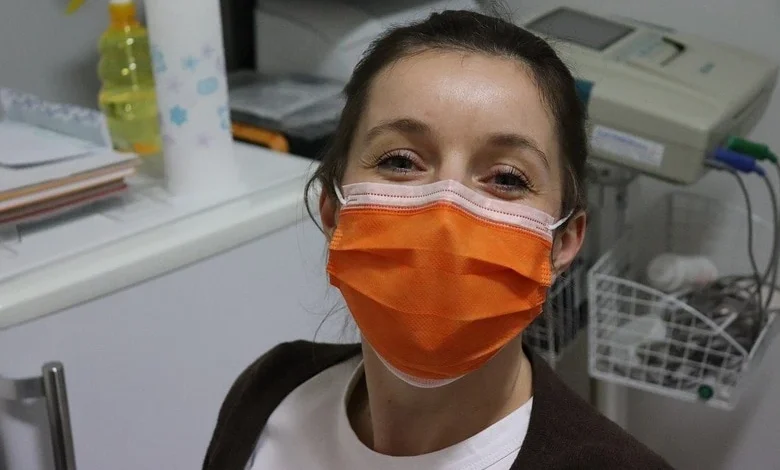
Nurses play a crucial role in healthcare, bridging the gap between doctors and patients. They are often the first point of contact for patients, providing care, support, and, importantly, education. Their role goes beyond just treating illnesses; they promote health education and preventive care. This role has become even more significant as the healthcare industry shifts towards a preventive model, focusing on stopping diseases before they occur.
Nurses educate patients on how to lead healthier lifestyles, manage chronic conditions, and understand their treatments and medications. Their efforts in patient education and preventive care not only improve individual health outcomes but also have a broader impact on public health. With the support of advanced education, nurses are better equipped to meet these challenges.
This article explores the multifaceted role of nurses in patient education and preventive care, highlighting how their dedication and expertise contribute to healthier individuals and communities.
The Nurse’s Role in Patient Education
Nurses play a crucial role in patient education, acting as the bridge between complex medical information and the patient’s understanding. They use their expertise to explain diagnoses, treatment plans, and the importance of following medical advice in a way that is accessible and understandable. By doing so, they empower patients to take charge of their health, make informed decisions, and adhere to their treatment plans. This not only improves patient outcomes but also fosters a sense of trust and partnership between the patient and healthcare provider.
Empowering Nurses Through Education
Nurses looking to enhance their skills and knowledge in patient education and preventive care can benefit from accelerated RN to BSN programs online, which offer a flexible and efficient path to advancing their careers.
These programs offer a fast track for registered nurses (RNs) to obtain a Bachelor of Science in Nursing (BSN), providing them with a deeper understanding of medical practices, patient care techniques, and the latest in health education strategies. By enhancing their education, nurses can better serve their patients, offering informed advice and support for preventive measures that can lead to healthier lifestyles and reduced hospital visits.
Preventive Care Strategies
Preventive care is at the heart of modern nursing practice. Nurses are often the first healthcare professionals to identify risk factors for diseases and to offer strategies for prevention. This includes administering vaccines, conducting screenings, and educating on healthy lifestyle choices such as diet, exercise, and smoking cessation. Nurses assess individual patient needs and tailor preventive care advice accordingly, helping to avoid the onset of chronic diseases and conditions.
Health Literacy and Communication
Effective communication is essential for successful patient education and preventive care. Nurses must possess strong health literacy skills to convey medical concepts in a clear, concise, and relatable manner. Nurses must also be adept at listening to patients’ concerns and questions providing answers that address their specific needs and fears, thus building a foundation of knowledge that supports preventive health behaviors.
The Impact of Technology on Patient Education
Technology has transformed the way nurses engage in patient education and preventive care. Digital tools and online resources provide nurses with up-to-date information and innovative ways to teach patients about their health. From mobile health apps and telehealth services to electronic health records and online educational platforms, technology enables nurses to offer personalized, interactive learning experiences. This not only makes information more accessible to patients but also allows for continuous education outside the traditional healthcare setting, encouraging ongoing engagement with preventive health measures.
Tailoring Education to Diverse Patient Needs
Nurses must recognize and adapt to the diverse needs of their patient populations, including cultural, linguistic, and socioeconomic factors that influence health behaviors and access to care. By customizing education and preventive care plans, nurses ensure that all patients receive the support and information they need in a manner that respects their unique backgrounds and life circumstances. This approach enhances patient engagement and compliance, ultimately leading to better health outcomes across diverse communities.
Chronic Disease Management
Nurses are key players in the management of chronic diseases, providing patients with the education and tools they need to manage their conditions effectively. This includes teaching patients about medication adherence, symptom monitoring, and lifestyle modifications. Nurses also support patients in setting realistic health goals and developing strategies to achieve them, which is crucial for long-term disease management and improving quality of life.
Behavioral Health and Mental Wellness
The role of nurses extends beyond physical health to include promoting mental wellness and supporting patients with behavioral health needs. Nurses provide education on stress management techniques, the importance of sleep and nutrition, and ways to cope with mental health issues such as anxiety and depression. They also act as advocates for patients, helping them navigate the healthcare system to access mental health services and resources.
Collaboration with Other Healthcare Professionals
Effective patient education and preventive care require collaboration across a multidisciplinary team of healthcare professionals. Nurses work closely with physicians, dietitians, physical therapists, and other specialists to develop comprehensive care plans that address all aspects of a patient’s health. This collaborative approach ensures that patients receive holistic care and that educational efforts are consistent and reinforced by the entire healthcare team.
Conclusion
Nurses are indispensable in the realm of patient education and preventive care. Their unique position allows them to make a significant impact on individual patient outcomes and the health of the broader community. Through personalized education, the management of chronic diseases, support for mental wellness, collaborative care, and community engagement, nurses empower patients to take control of their health. The role of nurses is ever-evolving, with advances in technology and education further enhancing their ability to meet the complex needs of their patients. As healthcare continues to shift towards a preventive model, the role of nurses in educating patients and promoting preventive care will only grow in importance, making their contribution vital to achieving a healthier future for all.
Check out these fascinating insights for a deeper understanding!






